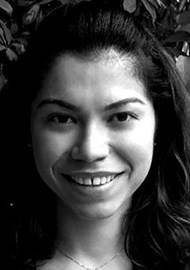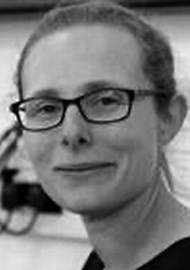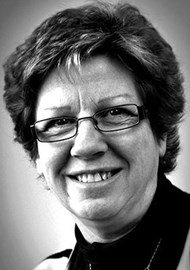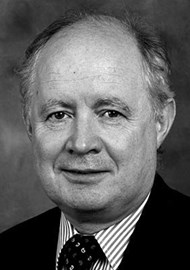During the COVID-19 pandemic, new guidance for newborn hearing screening programmes and management of audiology referrals was released by Public Health England [1,2]. There was also joint guidance from the UK professional bodies [3] and guidance from NHS England regarding prioritisation of audiology services [4].
However, it became apparent that there were differences in individual services’ implementation of the guidance as local NHS Trusts responded to the pandemic. Outpatient services in some hospitals were closed entirely and audiologists redeployed, whilst others were able to continue with some clinics.
In May/June 2020 the British Association of Audiovestibular Physicians, British Association of Paediatricians in Audiology, ENT UK and the UCL Ear Institute captured a snapshot of how paediatric audiology services were performing during these unique times in order to understand how recent changes in protocols affected different departments and how services might begin planning for the future.
The survey
The Opinio survey tool was used to collect views from paediatric audiology leads during 7 May to 18 June 2020. As the survey did not involve access to or collection of private or sensitive data, it was exempt from the ethics review process.
Who answered the survey?
Sixty-seven people from across the UK completed the questionnaire and the vast majority of the respondents (96%) worked in the NHS. The majority of respondents’ usual model of newborn screening was hospital based (75%), the rest being community based (10%) or a mixed model of hospital and community (15%).
Our findings
Screening services
Just over half of respondents said they were able to continue with their diagnostic service for babies referred from the screening programme as normal. Most well babies and babies who had spent time on the NICU were screened prior to discharge from hospital (88% and 83% respectively). Importantly, no services had to fully suspend newborn hearing screening, however 41% were unable to continue as normal and adopted changes suggested by PHE. Nearly two thirds (63%) of sites proceeded immediately to AABR in the same session when there was no clear response recorded on the first AOAE. The likelihood of an increased subsequent referral rate due to those cases of temporary conductive loss was a significant concern amongst respondents, as managing service capacity was reported as the number one challenge they anticipated having to deal with during the recovery period.
Respondents’ comments revealed starkly different situations between sites:
“We are screening with the same tests as usual, including AOAE2 if time allows. We have maintained a near-normal referral rate. Some babies born in community have been missed, but most are being screened when they attend hospital for other screening tests.”
“At the beginning of the pandemic we had many babies leaving hospital with incomplete or no screens as they were being discharged early after birth. Mums unwilling to come to hospital to complete screen. It then took several weeks to organise a community venue where mums are willing to come to. We organise six clinics a week now to try and catch up with backlog. Last week we had a backlog of about 120 babies to screen.”
While the majority of services (72%) were offering screening to all babies who missed screening (e.g. if they were born at home or had moved into the area), there was a significant number of services who were either deferring the screen to a later date or only offering screening appointments if the baby had risk factors associated with hearing loss (e.g. congenital infection, cranio-facial anomaly, syndrome associated with a hearing loss).
Diagnostic services
A substantial number of the respondents (45%) reported that they were unable to continue with their diagnostics services as usual. This meant that babies with no clear response at AABR (unilateral and/or bilateral) were not seen by audiology diagnostic services in the usual manner.
Some services adapted by deferring diagnostic appointments to a later date. Unilateral and bilateral referrals were deferred by 10% and unilaterals only were deferred by 18% of respondents. At the time of the survey, the UK was in lockdown, with no prediction of when these patients could be seen. This has, expectedly, concerned paediatric audiologists as managing family anxiety has been reported as one of their main worries for the future. However, audiologists adapted their services with care and thought:
“At the height of lockdown, initial phone consultations were offered to all patients for full history, thus hopefully reducing duration of face-to-face contact if appropriate. Babies with risk factors or significant concerns (unilateral and bilateral referrals) are offered ABR straight away. Testing was delayed for all others. We are starting to see more patients now and all bilaterals are offered either OAE or ABR appointment. We are hoping to see all unilateral referrals as well at some point.”
“Bilateral referrals have been offered diagnostic ABR as usual. A few have been seen later than planned (parental choice). All unilateral referrals have been deferred, but CMV swab has been completed at the screening appointment, and in once case positive CMV swab in a unilateral refer baby has initiated immediate progress to diagnostic ABR and onward management.”
Babies with screening contraindications were seen as normal in the majority of cases (88%) as these were classified as urgent cases. Screening for babies born to COVID-19 positive women or babies who were COVID-19 positive themselves went ahead as usual for 23% of services but was deferred for the majority. Many departments said that, although they had planned for this situation, it had not actually occurred in their service.
Guidance
Most respondents were happy with the level of guidance provided around COVID-19, with only 24% saying they felt that they needed more. However, of those that did feel more guidance would have helped, several said that they were unsure about what to do for babies where screening was refused by parents:
“Babies who decline due to COVID-19, should we target follow up or discharge as usual for declines?”
“Plans/guidance for parents that reject appointments due to COVID-19. Are we responsible or should parents be responsible for the outcome?”
While some respondents suggested that advice was difficult to implement in their Trusts, others felt that guidance could have been more timely, but acknowledged the difficulties of this:
“I understand why it didn't happen, but I felt that everyone in the country should have been doing the same, or there should have been stages set depending on current C19 outbreak by area. Completely understand how difficult this situation was and everyone doing what they felt best however.”
“There has been some guidance but it appeared after the event when services had been left stranded to try and make decisions and justify these to their Trust management. It would have been helpful to have had a single point of contact on this.”
“More early guidance would have been helpful around national approach. OK now.”
What challenges do audiologists anticipate in the recovery stage?
The top challenge highlighted by audiologists was managing capacity and this is understandable given the huge limitations that have been put on services for an extended period of time. Workforce issues and managing the anxiety of families who are waiting were also areas of concern. Several respondents mentioned other challenges, particularly around practical issues related to COVID-19:
“Practicalities of PPE, managing social distancing and ensuring clinics COVID secure.”
“Modifying work practices to comply with social distancing, and safe working at close proximity.”
Adapting to change
The COVID-19 outbreak has made departments rethink and adapt service delivery in audiology. As the scenario continues to change, new adaptations are being made and the paediatric audiology community has been working together in order to overcome differences in practice brought up by their individual Trust policies. While some paediatric audiology centres continued to use their ABR peer review group as usual, a lot of respondents reported that they were using this group as a support platform to discuss ways to standardise approach as well as discussing individual cases, and demonstrated community spirit between paediatric audiologists:
“During the pandemic, communication [with our ABR peer review] is more around advice, checking how other departments work and sharing information”.
“Sharing support (including the loan of room and staff when needed)”.
Respondents also highlighted improved working relationships with other services:
“We also have developed a great relationship with maternity and the screening team during this COVID crisis. It has been a pleasure to work with them and we all hope that this good working relationship continues afterwards.”
Redeployment of audiologists
Audiologists were redeployed in 60% of services to a wide variety of roles, ranging from newborn hearing screeners, to portering, administrative roles, working in laundries and sewing rooms, mortuary assistant or even frontline COVID-19 roles. This not only shows the transferable skills of an audiologist, but also the remarkable flexibility and responsiveness of the audiology profession in a collaborative effort against COVID-19.
What can be learned from the response to COVID-19?
While there was an attempt to release a universal guidance, in reality individual audiology services’ interpretations of such guidance were steered by their local Trust policies:
“No matter what the guidance is, we are bound by the Trust decisions regarding patients and visitors coming to the hospital so can only apply some of the guidance once the Trust allows outpatient clinics to re-open.”
In addition, the rate of COVID-19 infections affected parts of the country differently and despite a national policy, the demand for audiology clinic spaces and staff was variable. As a result, audiology departments’ ability to carry out activity was inconsistent; while some were told to close all outpatient activity not considered urgent, others continued seeing patients in a normal or near normal manner.
The need for more clarity covering all aspects of NHSP was highlighted:
“Interim guidance for NHSP should cover the main four steps - Screening + Diagnostics + Amplification (Intervention) + Aetiology. ....Not just the screening stage. This means both PHE and NHS responsibilities needed to be covered.”
Nevertheless, paediatric audiology services have shown creativity and resilience, and have collaborated with colleagues in order to keep services active where possible and continue to provide good quality care for children and families.
References
1. Public Health England. Newborn hearing screening programme guidance on the management of babies who have not completed the screen and audiological assessment pathway during the COVID-19 outbreak. 2020;(1):1-8.
www.baaudiology.org/app/uploads/2020/05/
NHSP-management-of-babies-who-have-not
-completed-the-screen-and-audiological
-assessment-pathway-during-COVID19.pdf
Last accessed July 2020.
2. Public Health England. Newborn hearing screening programmes technical guidance and management of audiology referrals during the coronavirus ( Covid-19 ) pandemic. 2020;(April):1-8.
www.baaudiology.org/app/uploads/
2020/04/Newborn-Hearing-Screening-technical
-guidance-during-Covid-19-v2-CLEAN.pdf
Last accessed July 2020.
3. From the UK’s audiology professional bodies. Audiology and otology guidance during Covid-19. 2020;(1):1-24.
www.baaudiology.org/app/uploads/
2020/05/Covid-19-audiology-and
-otology-guidance-1-May-2020.pdf
Last accessed July 2020.
4. NHS England, NHS Improvement. COVID-19 Prioritisation within Community Health Services. 2020.
www.england.nhs.uk/coronavirus/
publication/covid-19-prioritisation-within
-community-health-services-with
-annex_19-march-2020/
Last accessed July 2020.
With thanks to Stuart Harris, Plymouth Hospitals NHS Trust, and John Waters, Princess Alexandra Hospital NHS Trust at St Margaret’s Hospital.








